Grocery shopping can get expensive fast, especially when you’re unknowingly paying extra for convenience and branding. While some items justify their price tag, others are simply not worth it. This list highlights 15 overpriced grocery items that add unnecessary costs to your bill—and smarter alternatives to help you save without compromising quality.
Pre–Cut Fruits and Vegetables

While pre–sliced produce is convenient, it comes with a significant markup. A whole pineapple costs much less than pre–packaged chunks. Instead, buy whole fruits and vegetables and cut them yourself—it’s fresher, cheaper, and reduces waste.
Name–Brand Spices

Many brand–name spices are nearly identical to their generic counterparts, except for the fancy label and inflated price. If you compare the ingredient lists, you’ll find they’re often exactly the same. Buying store–brand spices in bulk or from ethnic grocery stores can save you a fortune while keeping your meals just as flavorful.
Bottled Water

That bottle of water might seem inexpensive, but the costs can really add up over a month. Think about how many bottles you buy – it could be more than you realize!” A reusable bottle and a water filtration system—whether a pitcher, faucet attachment, or under–sink filter—provide the same clean drinking water for a fraction of the cost.
Pre–Made Salads
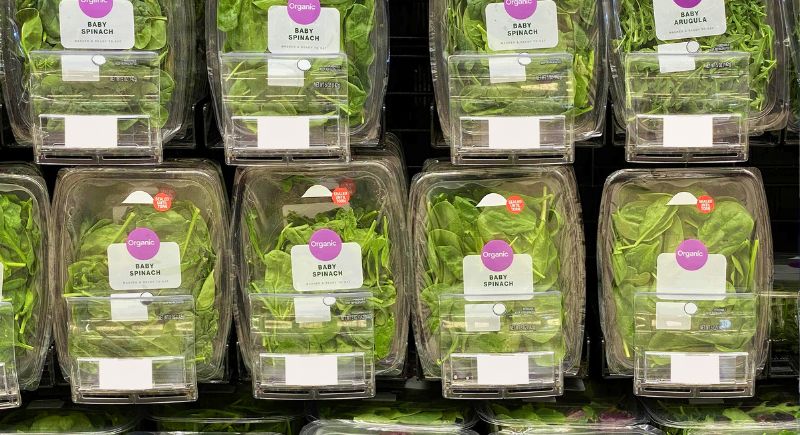
Packaged salads may seem convenient, but they often cost double what the ingredients would if bought separately. A head of lettuce, some fresh veggies, and a homemade dressing can cut costs for you and also taste significantly better.
Gourmet Coffee Pods

Single–use coffee pods cost significantly more per cup compared to traditional brewing. Switching to ground coffee or a reusable pod system is an easy way to cut costs while still enjoying your morning caffeine fix.
Pre–Marinated Meats
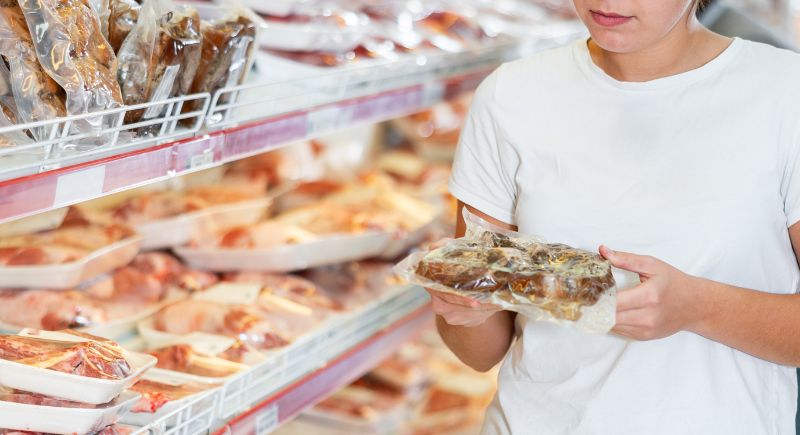
Marinated meats from the store come with a hefty markup. Instead, buy plain cuts and season them at home. A simple marinade with olive oil, herbs, and spices is cheaper and lets you control the flavors.
Gluten–Free Products (When Unnecessary)
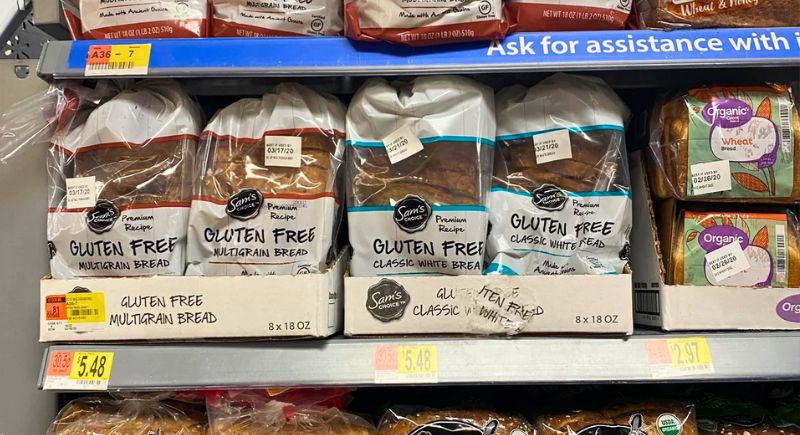
If you have celiac disease or gluten sensitivity, gluten–free options are essential for you. However, for those without dietary restrictions, these products are often needlessly expensive. Many gluten–free versions of bread, pasta, and snacks cost double their regular counterparts, without offering any health benefits unless medically necessary. Stick to standard versions unless you truly need to avoid gluten.
Individual Snack Packs

Pre–portioned snacks come with a convenience tax. A small bag of almonds or pretzels in individual packets costs far more than a large container of the same product. Buying snacks in bulk and then dividing portions into reusable containers is a much more budget–friendly option, and it helps reduce unnecessary plastic waste.
Organic Produce (When Unnecessary)
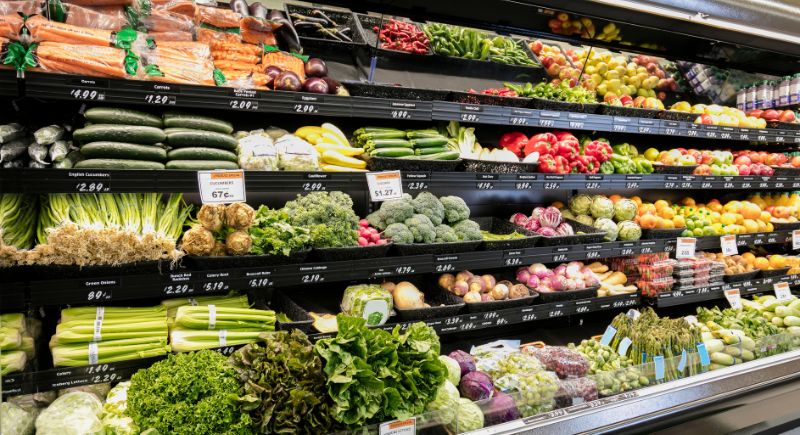
Not all organic produce is worth the extra cost. Items with thick skins, like bananas, avocados, and pineapples, have built–in protection against pesticides. Save your wallet (and your health) by choosing non–organic options for these items.
Pre–Made Smoothies
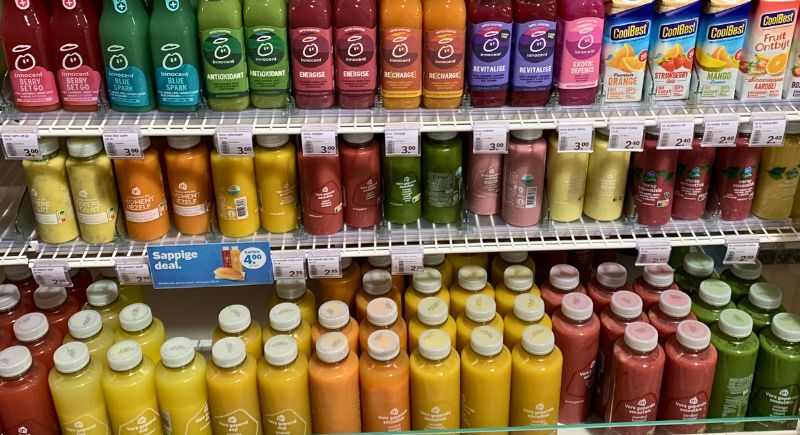
Smoothies often contain excessive sugar. Bottled smoothies often cost $5 or more, but you can make an entire pitcher at home for the same price using fresh or frozen fruit, yogurt, and milk. Making your own smoothies allows you to control the ingredients while saving money.
Fancy Bakery Bread
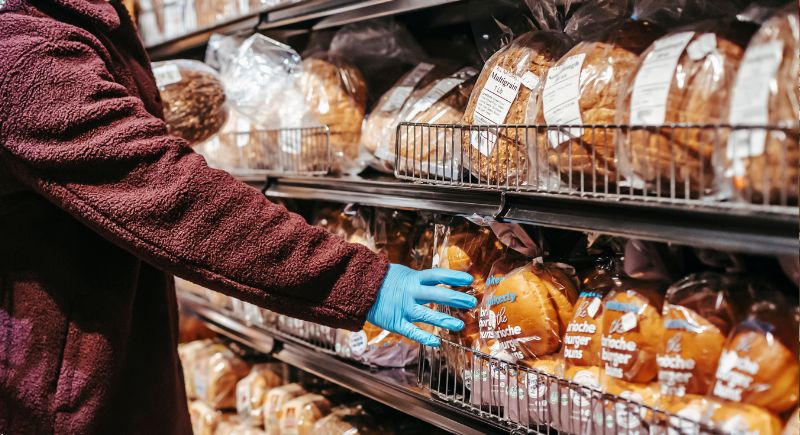
Artisan bread from the grocery bakery can cost $5 or more per loaf. Store–brand or fresh bakery alternatives from local stores can be just as delicious for a much lower price. If you enjoy baking then making your own bread at home is an even more cost–effective—and satisfying—alternative.
Pre–Grated Cheese
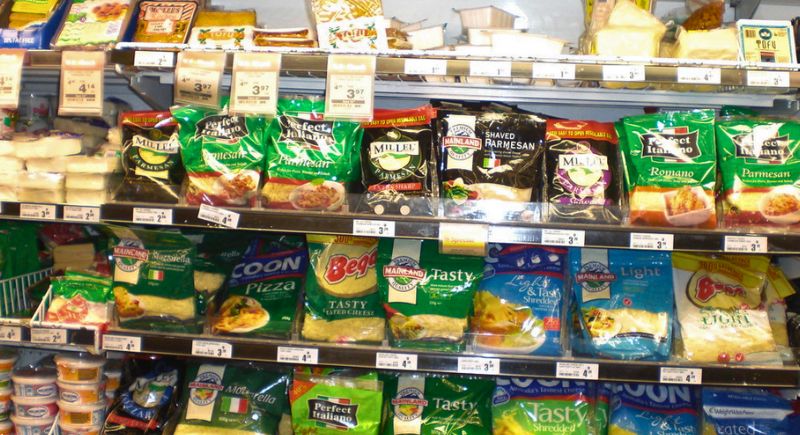
Shredded cheese makes your work easier, but it costs more per ounce and often contains anti–caking agents. These anti–caking agents can affect the texture and taste when melted. Buying a block of cheese and grating it yourself not only saves money but also results in a fresher, better–melting product for dishes like pasta, pizza, or tacos.
Energy Bars

Most energy bars are just overpriced candy bars with a health halo. While marketed as nutritious, they often contain just as much sugar as a standard chocolate bar. Instead of paying premium prices, make your own energy bars at home using oats, nuts, honey, and dried fruit. They’re cheaper, healthier, and just as satisfying.
Exotic Superfoods
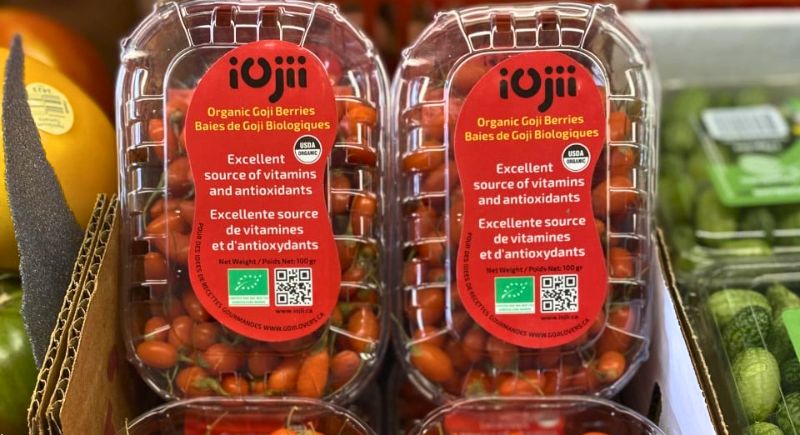
Trendy superfoods like acai and goji berries are expensive but don’t offer significantly more benefits than budget–friendly alternatives like blueberries, chia seeds, or spinach. Stick with more accessible options so you can buy more of it without it being a burden on your wallet.
Gourmet Salad Dressings

That $7 bottle of truffle-infused vinaigrette might look fancy, but it’s often just oil, vinegar, and a sprinkle of herbs. Making your own dressing at home takes minutes and costs a fraction of the price. Plus, you can customize flavors to your liking and skip the preservatives. Your salads—and wallet—will thank you.
Pre–Packaged Deli Meats
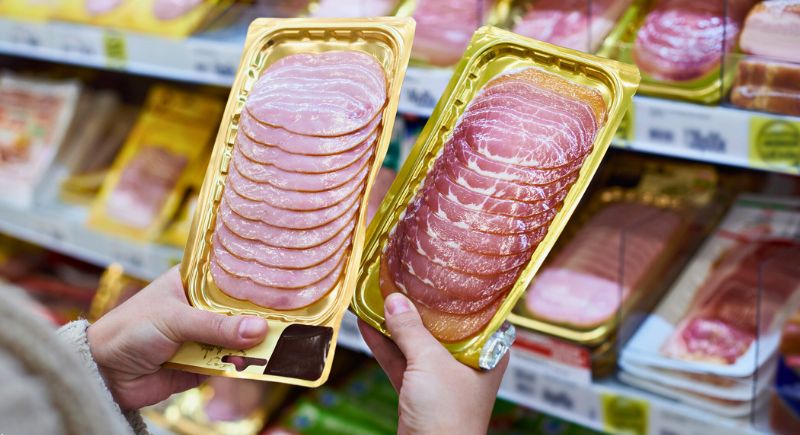
Packaged deli meats make cooking a lot easier but often come at a premium price. It’s wiser to slice your own from a larger roast or purchase fresh cuts from the deli counter. In addition to saving money, it enables you to obtain higher quality, fresher meat without having to pay for unnecessary processing and packaging.
Fancy Yogurt Cups

Those single-serve yogurt cups with fruit or granola mix-ins might look appealing but often come with a hefty price tag. Purchasing a large tub of plain yogurt and adding your own toppings not only saves money but also allows for customization to your taste.
Flavored Bottled Waters

Flavored bottled waters might seem refreshing, but they can be a sneaky drain on your wallet. A six-pack typically costs around $2.68, which adds up over time. Instead of buying these, consider infusing your water with slices of lemon, cucumber, berries, and other fruits and flavorings. It’s a cost-effective, eco-friendly alternative that allows you to control ingredients and avoid artificial sweeteners.
Microwaveable Rice Pouches
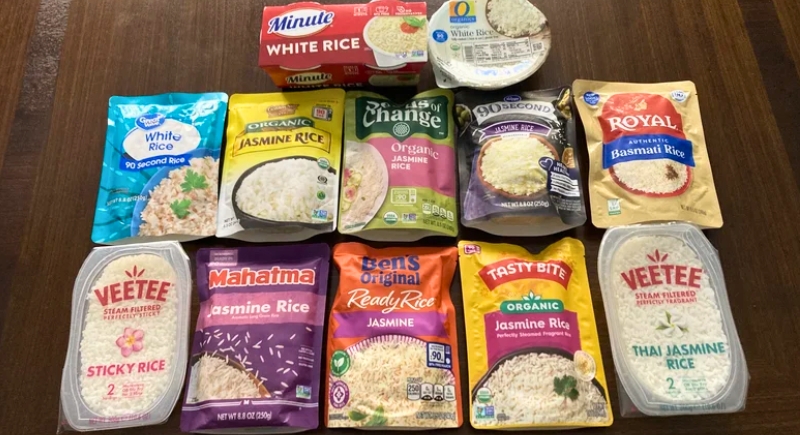
Cooking rice in bulk and storing portions in the freezer can save you money in the long run. This method reduces costs while also letting you take charge of the portion sizes, making it a healthier and more economical choice. Sure, microwaveable rice pouches, like Ben’s Original Ready Rice, offer convenience, but at a premium price, it is often not worth it.